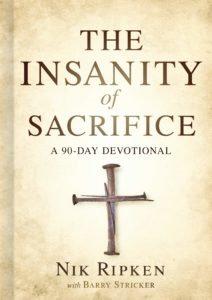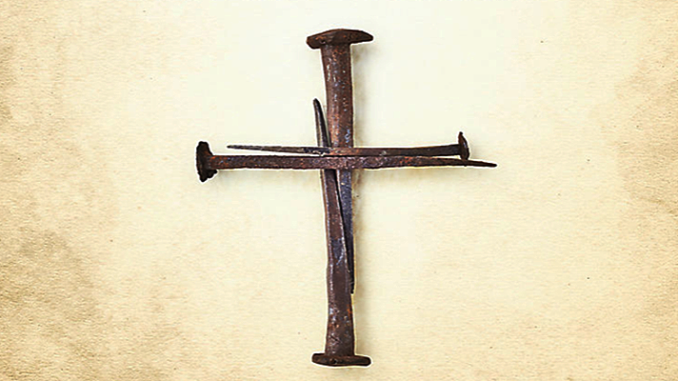
Podcast: Play in new window | Download
Subscribe: Apple Podcasts | RSS
Most devotionals tend toward encouragement or self-improvement. They’re simple, light-hearted reads perfect for the beginning of the day. The Insanity of Sacrifice takes that tried and tested formula and turns it upside down.
This isn’t a popular message. Ripken says as much throughout the book. But what it leads to—this life in the Spirit—is worth it all. Through ninety days of devotional material, Nik Ripken teaches and challenges readers to live sacrificial lives for God. Ripken speaks with clarity and precision, speaking as someone who has been through the fire in deeper and greater ways than most of us ever have. He speaks out of a wisdom and a context that very few have.
The Insanity of Sacrifice is a challenge. Be careful, because you can’t read it without radically changing who you are. So if you’re content, if you’re happy, if you have everything you want—just skip this. But if you have within yourself a holy discontent that is urging you forward, The Insanity of Sacrifice can be your blueprint to get you started.
The Interview | Nik Ripken – The Insanity of Sacrifice
This excerpt has been lightly edited for brevity and clarity.
Listen the full hour-long interview at Apple Podcasts, Stitcher, Spotify, or wherever you listen to podcasts.
Josh Olds: You’ve spent a lifetime in the context of the persecuted church and now having kind of come back to the Western church, what do you see as being some of the main contrasts between those different contexts of Christianity?
Nik Ripken: Everything I’ve been told in my bachelor, masters, and doctorate in denominational schools taught me—even though Jesus said I’m sending you a sheep among wolves—taught me and trained me to be sheep among sheep.
And so Somalia spiritually, physically, emotionally ate my lunch. And I did not know how to think reason, pray, you know, do theology, if you will, in a place where the wolves are in the majority. And I didn’t know anywhere to go. Josh, I went almost everywhere you could go in the Western world begging for help. And so it seemed natural to us to go to believers in persecution, who would teach us how to be sheep among wolves, and not only survive, but thrive.
I remember sitting with one brother in Bulgaria, and I never seen things in such stark comparison in my life. He said to me, “Nick, don’t you ever give up in freedom what we never give up in persecution. That is our witness to the life, death and resurrection of Jesus Christ.” Because they knew—they know—the quickest way to end their persecution is to love their persecutors and win them to Christ. And now, after 36 years, I’ve returned back to the Western church, particularly America, where about 95% of church members by their own testimony, have never shared Christ with one person. I don’t understand it. I can’t accept it. But I do love the bride of Christ and I want to help her stand up and run.
When did it become acceptable only to die for one’s country and not acceptable to die for one’s Christ? And therefore, we should be asking not why those people overseas are being persecuted. The question is, why are we not?
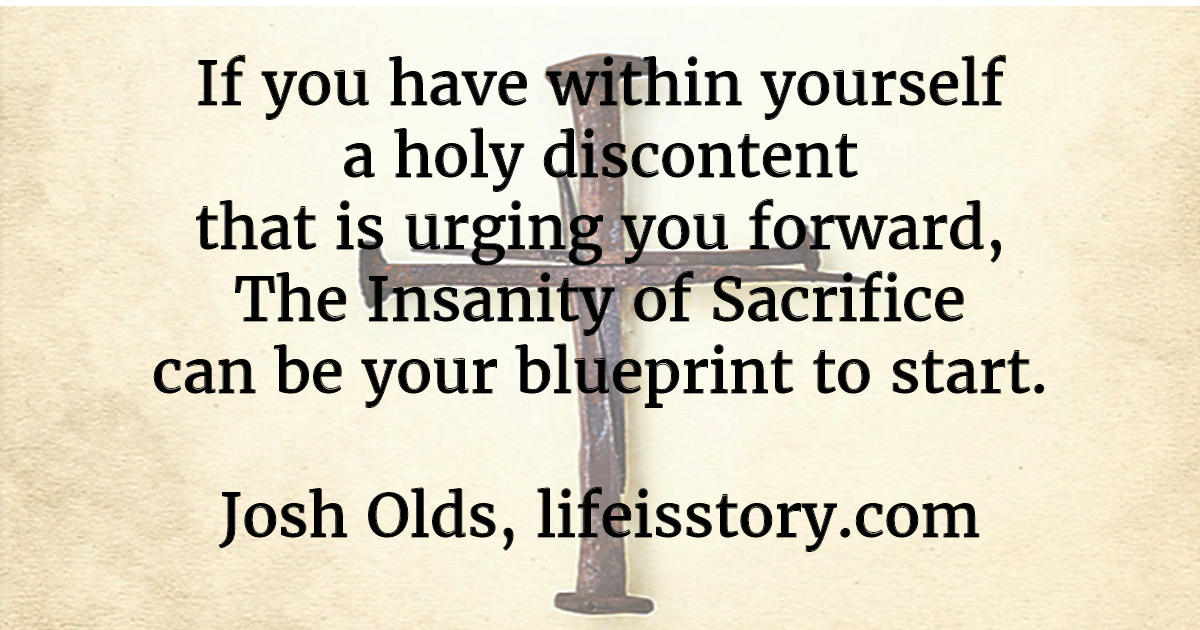
Josh Olds: This is a hard message, I think for the western church to accept the We, and by we I, I’m talking about the American church in general, I think has sort of a persecution complex, where we like to think we’re being persecuted. How do we get the western church out of that mindset to correct identity and emphasize with those in persecution? It really cheapens what the persecuted church goes through, when we here in the West claim persecution as our own.
Nik Ripken: The church is the bride of Christ, and I’m far past, criticizing her, condemning her…I want her to stand up and be counted and stand up and run for the Lord…believers in persecution are not suffering because of social issues. They’re suffering because they’re proclaiming, they’re receiving Christ as their Lord and Savior. And they’re sharing him.
I identify with the persecuted church when I share my faith with my brothers, my family members, with my neighbors, at work, at school. That’s how I identify with brothers and sisters in chains. But when I keep my faith to myself, and I don’t share, then I’m identifying with the persecutors because that’s what they’re trying to stop…When I am quiet about my faith, I’m performing the task that the persecutors would do to me if they had to.
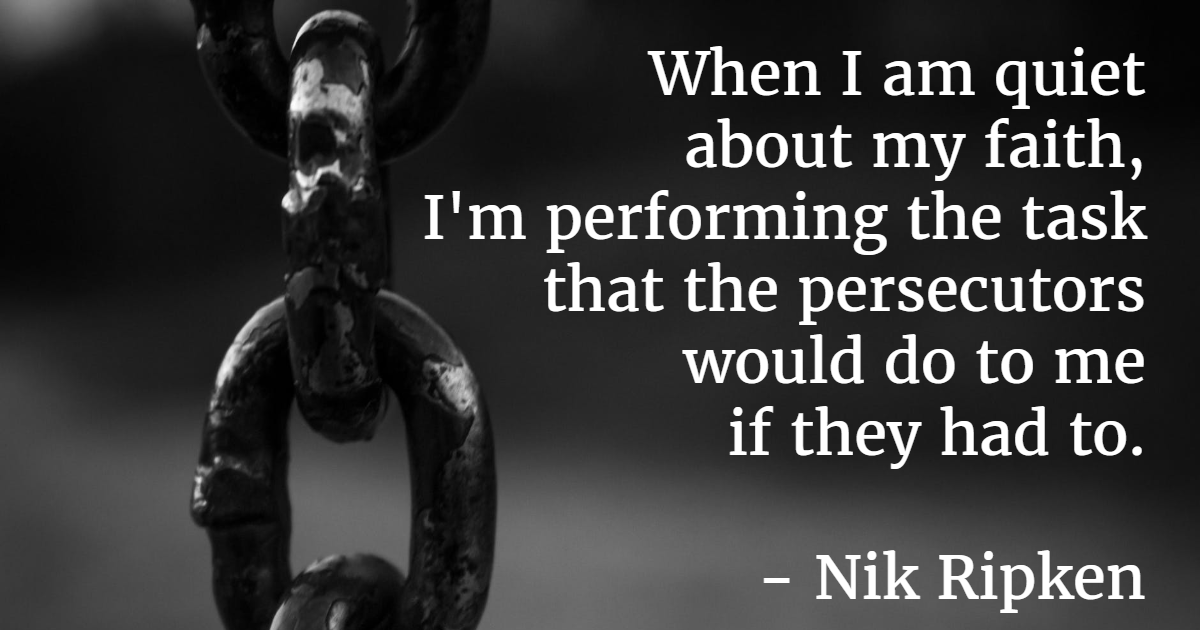
Josh Olds: Persecution forces us to decide if we’re really going to follow Jesus. In the West, where following Jesus can be so easy, is there a way of creating that intensity without the persecution that comes with it?
Nik Ripken: No, no, it always…you know, in the Bible persecution is normal…The more that the church prays for persecution to end—the only way that God can answer that prayer is to stop people from embracing His Son, Jesus Christ.
Josh Olds: This is a personal question for me. How do you deal with going into these dangerous situations with your family? And you know, there’s a sense of like fear and danger that I don’t mind placing myself in this situation—but it’s more difficult to make these considerations when you have children. So, for your life and your context, how did that play out in your life?
Nik Ripken: [A few years ago, at my father-in-law’s funeral], I put my arms around my grown sons and I said, “Boys, I have drug you all over the world. Your mother and I have moved 38 times and you wer involved in about 20 of those and if I’ve just done something spiritually or emotionally or physically to hurt you, I just want to ask forgiveness.”
And those boys, Josh, wrapped their arms around me—they’ve lived in some of the toughest places, I’ve watched as they’ve had IVs in their arms for 24 hours with quinine trying to kill the malaria in their system—and those boys hugged me and kissed me and said, “Daddy, we’ve had the greatest life than any child could have.”
And yet, we’ve come back to a culture where in our churches, many of our children drop out of church by their senior year in high school…Are we actually going to say that for security purposes—because of costliness of the gospel, which Jesus promised—we would rather our kids lose their salvation, then risk their physical lives?
Josh Olds: We try to live this safe life. We try to wall ourselves off. And the safe thing actually ends up being way more dangerous.
Nik Ripken: And so the question is: “Is Jesus worth it?” Is he worth my life, the life of my wife and the life of my children? But nobody is disposable. We throw no lives away.
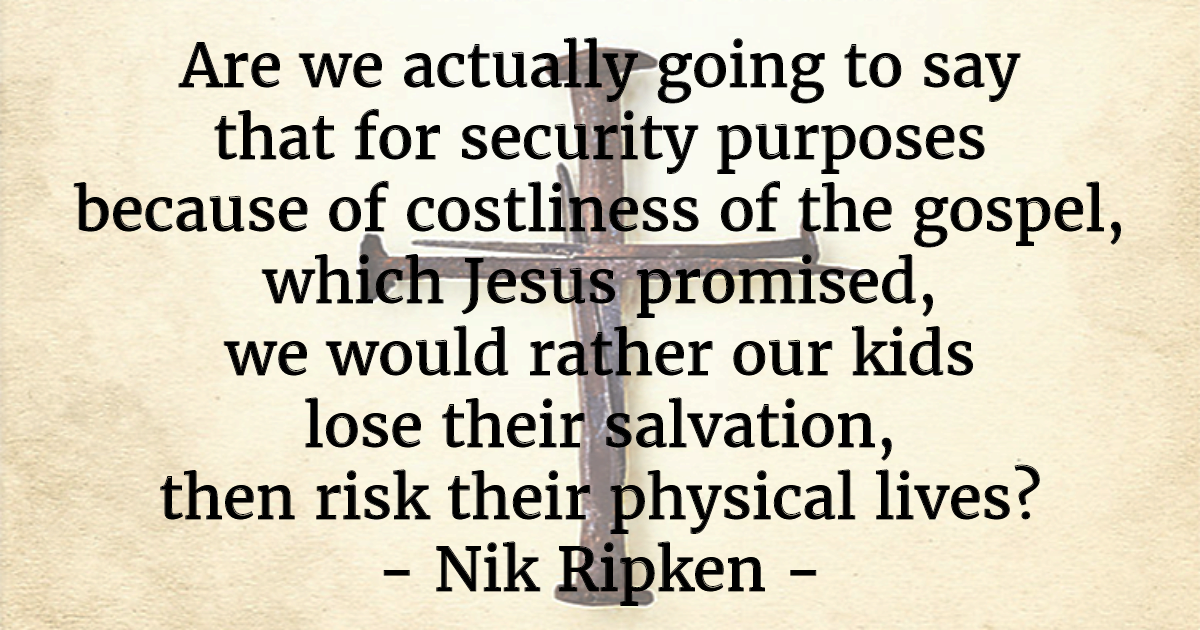
The Book | The Insanity of Sacrifice
Bestselling author Nik Ripken, mentored by believers in persecution, offers a 90-day devotional to help you align your heart with God’s, seeing the role sacrifice plays in the life of every follower of Jesus Christ.
Individuals and families will be challenged to embrace sacrifice as their daily offering to God. It is through offering ourselves that we mirror the nature of the Father who gave His only Son to be crucified, and the nature of the Son who gave His very life to save sinners. Through this book readers will discover that their sacrifice can lead others, across the street and across the oceans, to discover new resurrection life in Christ.
The Author | Nik Ripken
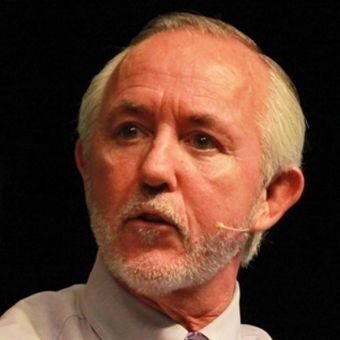 Nik Ripken is a leading expert on the persecuted church, having researched extensively in more than seventy countries. A veteran missionary of thirty years (primarily in North Africa and the Middle East), Nik is also the author of The Insanity of God, which inspired the motion picture of the same name.
Nik Ripken is a leading expert on the persecuted church, having researched extensively in more than seventy countries. A veteran missionary of thirty years (primarily in North Africa and the Middle East), Nik is also the author of The Insanity of God, which inspired the motion picture of the same name.

